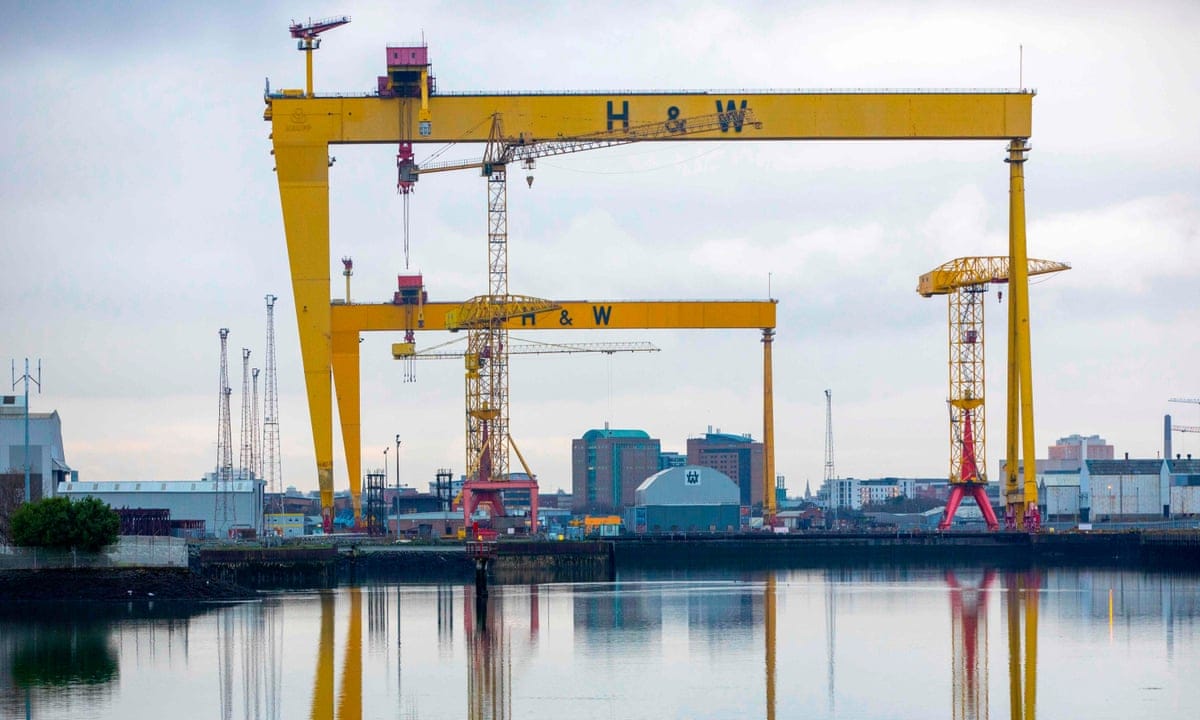Harland & Wolff, known for constructing the Titanic, remains in anticipation of an official decision from the government regarding a £200 million investment despite indications that Labour might decline this financial support.
The company faces an early test of the Labour government's approach to industrial policy as 1,50 bonafide workers are concerned about securing necessary funding within a limited timeframe to prepare for contracting three Royal Navy vessels.
Harland & Wolff (H&W) had to suspend its trading activities on London’s stock exchange two weeks ago and has missed opportunities to submit audited financial statements, sparking worries about the company's solvency and ability to complete a £1.6 billion contract for three fleet support ships designed to transport essential supplies like ammunition and food to naval aircraft carriers.
Initially, under Conservative leadership, an agreement was made to fully cover a £200 million loan by a group of lenders with the intention of helping Harland & Wolff manage its debt load. However, H&W reduced its request for full coverage to 80% and provided legal opinions indicating such support would not contravene state aid rules.
According to a report from The Financial Times, Labour is considering this type of financial assistance inappropriate, with an anonymous government source quoted as saying: “Providing the loan guarantee would be highly reckless.”
The company has been investing substantially in workforce expansion and infrastructure development across its Belfast base and facilities located in Devon's Appledore, Scotland's Methil, and Arnish. Their plan is to distribute tasks for constructing fleet support vessels between these sites while collaborating with Spain's Navantia through a joint venture.
A spokesperson from Harland & Wolff mentioned that former chancellor Jeremy Hunt approved the loan guarantee concept in December, but raised concerns about government underwriting the entire loan value during March discussions. The company has now proposed an alternative deal involving 80% coverage, a common level for companies receiving similar support, and is awaiting feedback from the new government administration.
The spokesperson continued: “We understand that civil servants are currently briefing ministers on our situation,” said Harland & Wolff’s representative. “Having been in operation for less than eight weeks with a change of leadership, it may take some time to reach a decision. We have yet to receive any formal communication from the government and remain prepared to meet at their convenience.”
A failure to secure this financial guarantee could seriously impact Harland & Wolff's prospects as they had previously agreed on such an arrangement with UK Export Finance, which falls under government oversight. Without a supportive decision, H&W would need to approach private lenders at market rates for refinancing the £191 million in outstanding debt.
The company's top priority is seeking alternative financing options to address its immediate concerns regarding a loan of £91 million from Riverstone Credit Management, which imposes an interest rate exceeding 14%. The repayment deadline is set for the end of this year.
A meeting was held on Tuesday involving Harland & Wolff's board to discuss financial matters according to two individuals familiar with the situation. However, there has been no communication relayed to workers or those managing operations at Belfast’s primary shipyard. A participant in these talks expressed increasing concern: "The longer this uncertainty persists, the greater the apprehension among our workforce."
Read next

Ryanair plane had only six minutes of fuel upon Manchester landing, records show
Flight Narrowly Avoids Disaster After Storm Diversion
An inquiry has been launched after a Ryanair flight, struggling against severe winds during storm Amy last week, landed at Manchester Airport with only six minutes’ worth of fuel remaining.
The aircraft had been transporting passengers from Pisa, Italy, to Prestwick, Scotland, on

"Qantas customer data for 5 million exposed as hackers release info post-ransom deadline"
Hackers Leak Personal Data of 5 Million Qantas Customers on Dark Web
A cybercriminal group has released personal records of 5 million Qantas customers on the dark web after the airline did not meet their ransom demand.
The breach is part of a larger global incident affecting over 40 companies,

Investors flee record-high UK stocks as EU set to hike steel tariffs
Investors Withdraw Record Sums from Equity Funds Amid High Market Valuations
Data reveals that investors in the UK have withdrawn an unprecedented amount of money from equity funds over the past three months, driven by concerns over soaring stock market valuations.
According to the latest figures from Calastone, the largest

